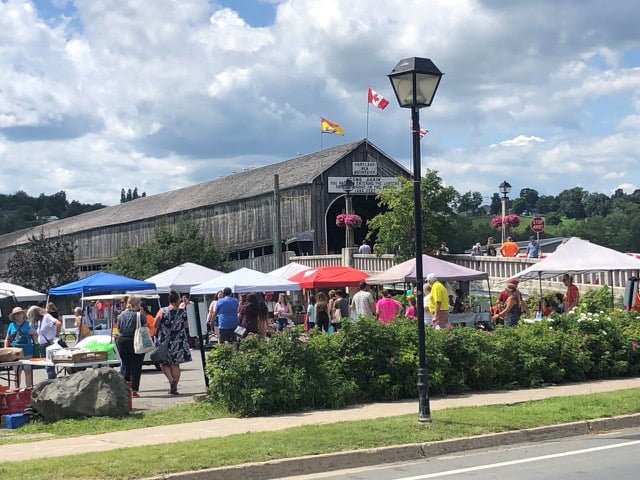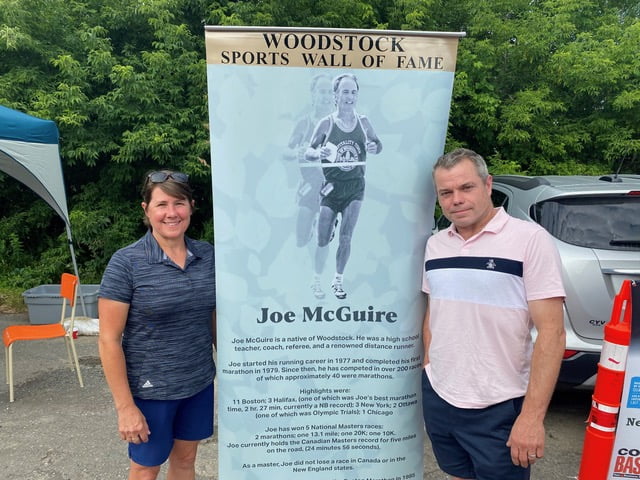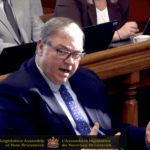RCMP says community policing a priority, despite calls to replace RCMP with municipal force in Hartland and Carleton North
The Western Valley District RCMP is ramping up its efforts to crack down on crime in the river valley with more resources, a push toward community policing, a commitment to increase police presence, and fighting petty crime in rural areas.
“We are putting every effort and all our resources into solving crime and putting those responsible in jail,” said Sgt. Dan Sharpe, in charge of operations for Western Valley. “Petty crime is rampant. It’s having an impact on our communities, leaving people to feel unsafe.”
Communities up and down the river valley have been struggling with property theft and drug-related crime due to drug use and trafficking in methamphetamine.
Many local residents worry about their homes and businesses being broken into and their property stolen. Theft of all-terrain vehicles, dirt bikes, motorcycles, trucks, cars, tools and copper wire are conducted regularly as a source of revenue to feed drug addiction.
“I have zero tolerance for that,” Sgt. Sharpe said. “We’re coming to get those criminals and get property recovered for people.”
The municipality of Hartland and the District of Carleton North are currently undergoing a joint review of RCMP services in the area due to concerns about policing. The first public meetings will be held on Nov. 8 at Carleton North High School and on Nov. 9 at Hartland Community School.
“It’s up to communities to decide what they want to do,” Sgt. Sharpe stated. “I can’t sway them one way or the other. My job is to make sure they get the best service possible from the RCMP, and that’s what I promise we will do.”
Sgt. Sharpe grew up in Upper Woodstock and knows the area well. He has 12 years of service with the RCMP, with former postings in Oromocto, Newfoundland and Labrador, and Iqaluit in Nunavut. He sees community policing as an essential first step in tackling crime in the valley.
“Community policing is a priority,” Sgt. Sharpe said. “I want Western Valley to be involved in the community, not just responsible for responding to calls for service. People should know us by name and see us as a friendly face as well as police officers. It’s our way of working together with the community to bring change.”
By developing connections within the community, police are better informed and empowered to solve public safety problems, he said. Police forge partnerships with people who live and work in the community, and these partnerships can help develop trust and transparency, leading to more efficient and effective policing and better community-police relationships.
Sgt. Sharpe pledged an increased police presence and more visible patrols in rural areas. He said RCMP officers in the district will also be visiting schools, attending community events, and meeting with community groups to discuss any issues or concerns.
“All we need is to be invited,” Sharpe said. “Call us or come by the detachment to talk to me. The easiest way to reduce crime is to let us know what’s happening in your community. We need those calls coming in so we know what areas to focus on.”
The Western Valley District RCMP covers an area from Perth-Andover to the outskirts of Nackawic. Sgt. Sharpe is in charge of policing for Florenceville-Bristol, Hartland, and the rural areas surrounding Woodstock, Canterbury, Fosterville, Debec, Benton, and Kirkland.
His counterpart, Cpl. James Gallant, is stationed in Perth-Andover and is in charge of policing for Perth-Andover, Plaster Rock and Neqotkuk (Tobique First Nation).
There has recently been a significant increase in the number of officers serving the entire district.
The RCMP is working to address the drug problem in the region through a Crime Reduction Unit. This unit is part of a provincial task force that partners with Woodstock Police, Fredericton Police, and government agencies to increase awareness and crack down on violent and serious crimes, including drug trafficking.
“The drug problem is not unique to Western Valley,” said Sgt. Sharpe. “We are working with our specialized teams throughout the province to identify key targets and cut off drugs coming into our communities.”
The specialized services include police dogs, forensics, major crime investigators, a police helicopter, and emergency response teams.
“We have a wide range of experience to draw from, and our officers bring that experience to every single call they go on. When an officer comes to your door, they are not alone. There is an abundance of officers supporting them in the field.”
Sharpe said the public plays a vital role in assisting police with crime prevention. Residents can contact RCMP anytime to report any unusual traffic, the location of a drug house or storage of stolen goods, a description of a suspicious vehicle, or any criminal activity in their community. Informants may remain anonymous, and all information will be kept confidential.
Sgt. Sharpe welcomes emails and phone calls at his office. He can be reached at daniel.sharpe@rcmp-grc.gc.ca or by calling 506-325-3009.
Residents may also protect their property by locking their doors and vehicles, writing down serial numbers, and installing cameras, lighting, video surveillance, alarm systems, or a neighbourhood watch.
If rural communities want to see more policing in their area, they can contact Sgt. Sharpe to discuss their needs.
In the last 12 months, New Brunswick has shuttered 110 drug houses through its Safer Communities and Neighbourhoods (SCAN) program. Under the SCAN Act, investigators can evict property owners and tenants from their homes for drug dealing, organized crime and other illegal activities.
The provincial government is also pursuing legislation that could see drug users subject to involuntary treatment. The legislation would give police officers the power to order someone to undergo drug rehabilitation in extreme cases. The legislation is expected to be tabled in the spring of 2024.














